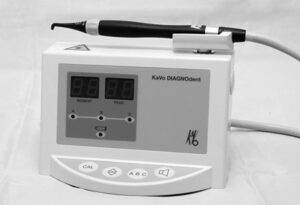The ‘extra’ teeth that you noticed behind your kid’s milk teeth are distinctive but not rare. Shark teeth, or medically known as ectopic tooth eruption is present in 2% to 6% of children in America.
However, their prevalence is more common (>20%) in children with cleft lip and palate. Shark teeth aren’t worrisome in most cases, but if you’ve reached out to your dentist to get their opinion on the matter, you get full marks for parenting!
At West Hills Smiles, our general dentistry department looks after all pediatric teeth issues. We’ve compiled a list of everything that you should know about shark teeth and when you should start worrying about them:
They’re less scary than you think.
The term ‘shark teeth’ is driven from the multiple rows (5 to 15) of teeth that a shark has. When adult teeth start developing behind the baby teeth in children, the second row of teeth is created in the mouth.
Children in the age group of 5 to 7 are more susceptible to ectopic tooth eruption, but they may also occur as late as 11 to 12 years.
Mostly, shark teeth develop behind the lower incisors, but they may also develop in other areas in the oral cavity, such as behind upper incisors and premolars.
Concerned parents like yourself often ask us some crucial questions regarding their children’s shark teeth.
We’ve compiled a list of frequently asked questions for your aid:
Why do shark teeth occur?
They occur when the permanent teeth dislocate the milk teeth by erupting directly underneath them. However, sometimes permanent teeth might fail to occur at the same spot as the milk teeth, which results in two rows of teeth in the mouth.
Are they harmful?
No. Shark teeth aren’t bad for your child’s oral health. As soon as they start occurring, the milk teeth in the mouth should start to wiggle on their own. The milk teeth will then soon be replaced by the permanent teeth.
Are they genetic?
Studies have shown that siblings of children with ectopic tooth eruption had higher chances (19.8%) of getting shark teeth. This indicates that ectopic tooth eruption can be genetically transmitted.
When should I seek dental attention?
You should ring the dentist whenever you’re concerned about your child’s dental health. Research has shown that early diagnosis can help shark teeth from becoming complicated.
If your child’s milk teeth don’t wiggle after two months of ectopic tooth eruption, you should immediately seek dental care. Don’t wait for your child to complain about a toothache in their shark teeth! Drive them to the dentist to see what can be done.
What’s the treatment for shark teeth?
If the milk teeth don’t dislocate on their own, we perform a small procedure to wiggle them so that they may fallout. The permanent teeth will then take their place, and all will be back to normal in your little one’s mouth!
At West Hills Smiles, we offer cosmetic, general, and emergency dentistry services in Woodland Hills, CA. Call us today at 818-346-4303 to book an appointment or visit our website for more information.





